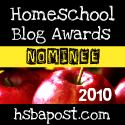Sloyd.
Incorporating Paper Sloyd as schoolwork provides great warm-up exercises in strengthening intellectual habits all year round (I've tried it!!). Who would have thought? Paper folding! It can also be great fun and spur one on to make some cool stuff. Read on and you'll see what I mean.
I learned about Sloyd through Charlotte Mason some time back, but never was sufficiently inspired to do more than schedule it until this summer while attending a workshop by my friend BobbyJo in Minnesota. At that time, I had recently been considering it again, though I can't remember why... maybe due to my friend Richele and its relation to Mathematics or maybe convos with yet another friend Tammy? Either way, for better or worse, I resolved to begin our adventures in Paper Folding the subsequent schoolyear (last fall).

Of course, we didn't start during the first term; that would have been So Very Drastic. :) This term however, we started at the very beginning (which is a very good place to start) in Paper Sloyd for Primary Grades. Even for the elder students who have no experience, Sloyd has it's benefits, though we must keep moving in order to keep attention and not insult pride or patience. We started with the basics as presented in this book. Working in order, we've finished the first nine projects over the last several weeks.
My littles have been especially SUPER excited about each project they can make as-is or adapt for gifts for their siblings and friends' special occasions! Two days after creating the envelope, we had a birthday! Not incidentally, that sister received more than one special note wrapped in a handmade envelope/wall hanger this year. :)

All of us have had to work into this new venue. I had to learn to be clear and careful in GIVING instructions. We have all had to work to maintain a friendly and relaxed atmosphere (struggle on, perfectionists!). The kids have had to make an effort not to get overwhelmed or frustrated while listening and concentrating in a group context with various skill levels represented. We have seen great progress in all of these after the first few projects! Yay!
Every project boasts a series of instructions to be followed including drawing lines, cutting, folding, etc. The comeliness of the final product is in direct correlation to how carefully each instruction is carried out. At every point, each step depends upon the previous step being done exactly. Students must pay attention and concentrate all the way through the verbal instructions. They must follow those same instructions thoroughly and accurately or their project will be wrong or turn out looking 'junky'.

Here's the low down...
- A perfect product is not the immediate goal (though I would be concerned if they cared not at all, but that hasn't been a problem with mine). My main objective is that the students take care to listen, concentrate and follow instructions thoroughly and accurately. If desired, they may later redo a project that they feel turned out poorly because of lack of skill or as a result of some inadvertent mistake (see below).
- Instructions are succinct on purpose. The student has to audibly process the instructions in order to follow through. I repeat the instructions aloud twice (w/ demo for my year one student when there's any potential confusion). Ahead of time, I emphatically encourage them to *think* before asking a question. It's much easier to ask a question than to think. If they can't seem to figure it out, they may wait and watch how someone else interprets the information (though obviously, I'd rather they figure it out for themselves).
- Everyone must respect others' need for concentration and NOT talk during the process unless asking a necessary question. It's also easy to get frustrated and have an outburst upon making a mistake - great for practicing self-control. (I encourage them that this is a learning process, to look for a way to make up for their mistake, and continue if possible. See next point)
- Disallowing re-do's mid-project obliges the student to experience natural consequences (a less than stellar final result). I have given second chances once or twice in order for my littlest to not feel overwhelmedly discouraged. One difficulty is, allowing one student to 'start over' because they're not happy with their cut or have folded wrong, requires the rest of the group to wait while they catch up. Or, I have to keep track of where two different sets are in the instructions line-up. Asking them to carry on (sometimes it's easy to make amends for mistakes by adjusting the measurements of the initial project size by trimming off a mistake), finish the project and re-do it if desired AFTER they know all of the instructions, seems to have been an acceptable consequence in most cases. This might be explained ahead of time to ward off an emotional blow up mid-project.

Teacher Tips:
Of vital importance for parents and educators → DO: Initiate & Direct, DO NOT: Control or Dominate.
Pre-work reminders...
- Make sure to have materials ready - mine are kept in a basket and collected at the end (scissors, rulers, hole punches, glue sticks, etc.).
- Have everyone clear their space of everything except scissors, ruler and a sharpened pencil.
- Remind everyone that this is a time for listening, concentrating and working quietly. "We want to be quiet so that others can do the same."
- Remind them that you will be repeating each of the instructions several times. For that reason also, we will listen carefully and think before asking questions. We might wait and see if watching what our neighbor does will help us to understand."
- Remind everyone that this is practice. "It's okay if we make a mistake. We'll do our best and get better with practice. If we do make a mistake, we'll keep going if possible. If it's not possible to fix it, we'll keep listening and following along to all of the instructions until they are finished and we can start over."
The optional topic for discussion during February for the Charlotte Mason Blog Carnival is: Some Unconsidered Aspects of Intellectual Training. This post is my contribution to that discussion. If you would like to participate, see this post for more information! All CM inspired posts are welcome.
Wanna Share?!
If you do blog specifically about Paper Sloyd, please come back and link with us so we can see and learn from you!!






































